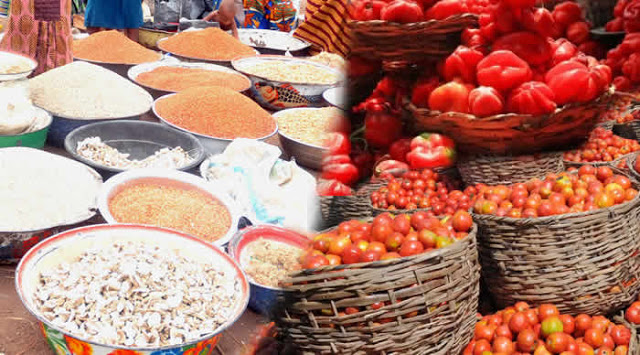Some residents of the Federal Capital Territory (FCT) have lamented the continuous rise in the prices of food items.
The residents on Saturday in Abuja, said they were unable to adequately stock their homes for the festive season.
The National Bureau of Statistics (NBS) Selected Food Prices Watch for February showed that prices of food items such as yam, rice, and beef witnessed increases in February.
Mrs Chritiana Adeyemi, a Civil Servant, said she had to prioritise her shopping list because she could not afford to buy all she wanted.
“Every day you go to the market, the prices of food items have increased. Sometimes you just have to forfeit buying some things
“Last week, I bought a kilo of goat meat for N2, 500, now it is N2, 800. That is a difference of N300 which I could have added to buy some other items.
“When I got to the market I was not happy because I could not buy all I wanted and I had to start making adjustments on what not to buy.”
Mrs Ngozi Samuel, a Public Servant and mother of three, said her family could no longer eat a balanced diet because of the prices of food items.
Samuel, however, said the rise in prices was a global issue but the government needed to find ways to cushion its effects on Nigerians.
“Many people cannot afford to eat a meal a day. That is how bad things have become. It is a difficult time for the country.
“Before, I could afford to buy fruits but now I have to channel that money to some other items. We have not talked about buying gas or kerosene which are also on the increase.”
Mrs Florence Bassey, a Businesswoman, and mother of four said the increase in prices of food was alarming, adding that she could not afford to buy in bulk anymore.
“When I got to the market I was shocked at the high increase, especially in tomatoes. A big basket used to be N8,000 last month, but it is about N22,000 or even more in some markets.
“Also pepper, tatashe, and other items like plantation have also increased. The sellers claim it is due to the fasting.”
Mr Paul Kato, a security guard, said the increase in food items was affecting his consumption rate.
“I used to buy a small plate of tomatoes for N100 to N150 in February, now it is N250 to N300 depending on where you go to buy.
“We used to buy N400 onions and it would last my family for two weeks, now N400 onions only last a week. After which you begin to look for money to buy again.”
“I appeal to the government to come and help us. Everything is expensive, how can the poor man cope?”
Mrs Bukola Adewunmi, a Businesswoman and Coordinator of Praying Women, said it had become difficult to do acts of charity because of the high cost of food items.
“It is difficult to be a blessing because of the high cost of things in the market and this might discourage people from doing the little they need to do to help the less privileged.
“But I will love to appeal to well-meaning Nigerians not to be discouraged because these motherless children and the poor need our collective support.
“They need food, drugs, clothing, and a show of love. Let us not stop giving,” she said.
The NBS Food Price Watch for February shows that the average price of 1kg of boneless beef increased on a month-on-month basis by 1.12 per cent from N2,418.91 recorded in January 2023 to N2,445.96 in February 2023.
The report showed that the average price of 1kg rice (local, sold loose) N514.83 increased on a month-on-month basis by 1.17 per cent from January 2023 to N520.84 in February 2023.
The NBS also said the average price of 1kg of tomato on a month-on-month basis, rose by 0.22 per cent from N467.04 in January 2023 to N468.09 in February 2023.
The report showed the average price of one bottle of vegetable oil stood at N1,196.68 in February 2023, showing an increase of 1.10 per cent from N1,183.67 recorded in January 2023.’’
Similarly, it said the average price of 1kg of onion bulb rose by 0.81 per cent on a month-on-month basis from N446.44 in January 2023 to N450.07 in February 2023.




